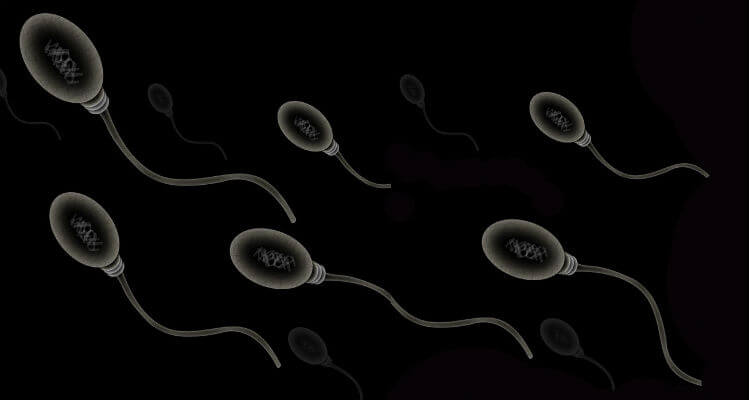The Potential Societal Disaster in Parents Determining the Sex of Their Children
Researchers sound the alarm against sex-selection technology.

Japanese researcher Masayuki Shimada has been working on developing a process to give farmers and ranchers a way to pre-select the biological sex of their animals.
So far his Hiroshima University-based team has had success with beef cattle, where male offspring are in much greater demand than females, though less so with pigs—his other target for the process.
This in and of itself might not be particularly disturbing, but a growing number of other scientists are warning that this same technique, if left unchecked, could also allow human parents to too-easily select the biological sex of their children.
This could eventually lead to a dramatically skewed sex imbalance and maybe even widespread cultural and societal devastation.
How the process works

What makes Shimada’s technique so problematic lies in its simplicity. Rather than using something like genetic engineering, where we might be decades away from development to a point where it can be casually used, Shimada instead based his work on the basic, almost mechanical way sperm works.
In a nutshell, Shimada has discovered that sperm carrying the X chromosome results in the offspring being a biological female, while those with the Y chromosome become biological males.
With this information, he subsequently developed a way to slow down the speed at which X chromosome-carrying sperm travel, allowing the male-resulting Y chromosome ones to reach and fertilize the egg first.
Far too easy

What’s troubling about this is that Shimada’s work could, in just a few years, lead to a way for parents to weed out X chromosome sperm and so seriously increase the likelihood of their child being born biologically male.
This kind of thing is hardly new, as a method to select the biological sex of an embryo already exists, through in vitro fertilization (IVF). The problem with the process of genetically analyzing an IVF embryo before it’s implanted is that it’s far from affordable for most parents.
But not so with a chemical that could be applied as a cream or gel to the vagina before intercourse. The affordability and ease-of-use tremendously magnify the risks that this process would be abused.
Males preferred over females

The concern was clearly voiced by Alireza Fazeli who, speaking to New Scientist, said, “I am concerned about the social impact of this. It’s so simple. You could start to do it in your bedroom. Nobody would be able to stop you from doing it.”
This Tartu University (Estonia) researcher’s opinion is not isolated. Others agree, such as bioethicist Wybo Dondorp from Maastricht University in the Netherlands, who added this statement to New Scientist’s coverage of the issue:
In countries where there is already a skewed sex ratio, it is clear that if there are more easy, cheap, accessible technologies they will be used.
This concern draws attention to a yet more profoundly disturbing element if this process should become commercially available: in many countries there remains a deeply skewed perceived value of male offspring over female.
It doesn’t take a huge leap of imagination to envision and shudder at the prospect that in these societies entire generations of predominantly biological males would be born.
The subsequent shortage of biological females might even lead women to become little more than highly sought-after property sold to the highest bidder. Meanwhile, those who couldn’t afford to buy might resort to importing women from other countries or moving to places where this sex imbalance doesn’t exist, putting a massive strain on not just their native land but these other regions as well.
Worst still, this imbalance might very well lead to an increase in the already too-prevalent practice of human trafficking, with biological females being kidnapped, tortured, and enslaved for people to profit off the situation.
To top it all off, there’s also the possibility of the pendulum eventually swinging the opposite way: parents, who have clearly observed that sons are now a dime-a-dozen and daughters have become priceless, might then select the latter over the former, leading to another wave of sexual imbalance—and yet more troubling societal damage.
Time to act

If there’s good news, it’s that some countries have already seen the potential problems and have made sex-selection illegal outside of medical necessity. While these laws have been focused on other techniques, and not any process based on Shimada’s work, it’s still somewhat reassuring.
Not to taint this moment of optimism, but it’s worth mentioning that only countries such as Canada, India, the United Kingdom, and Australia have these laws, while many others—notably the United States—don’t.
While we at Future of Sex do try to be as positive as possible about the impact of technology on human sexuality, the possibility that we may have an easy, cheap, and effective way of determining the biological sex of our offspring is seriously alarming.
While we all should be vigilant and vocal, the serious conversation, with many speaking out in favor of restrictions and even outright banning the technology, shows that there’s still a good chance we can avoid, or at least diminish, hugely detrimental outcomes.
As the old saying goes, we should let nature take its course, and we must accept that biologically male or biologically female, every child is a priceless human being.
Image sources: Jason Pratt, Zappys Technology Solutions, Torsten Mangner, Sam Howzit, Sean P. Anderson
Leave a reply
You must be logged in to post a comment.

















